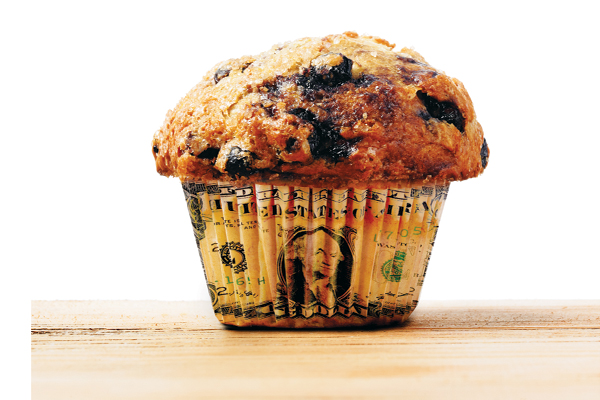Against the Grain: The Rise of Gluten-Free Bakeries in Boston
 Photo by David Arky
Photo by David Arky
Eating gluten-free is a way of life for the 3 million Americans living with celiac disease. For these people, ingesting gluten—found in wheat, barley, rye, and some oats—causes a reaction that damages the lining of the small intestine. The condition also prevents the absorption of important nutrients from food, says Melinda Dennis, the nutrition coordinator at Beth Israel Deaconess’s Celiac Center, and the coauthor of Real Life with Celiac Disease. “There has been an increase in people that are being diagnosed with celiac,” she says, “yet it’s still widely unrecognized and under-diagnosed.”
Medical professionals speculate that the steady rise in the number of cases has both genetic and environmental causes, but they can’t say for certain what’s going on. Celiac can show up at any age, and the symptoms vary widely, says Vijay Yajnik, an attending physician at the Crohn’s and Colitis Center at Massachusetts General Hospital. “One person may have celiac,” Yajnik says, and “one might just have gluten sensitivity. Will it ever turn into celiac? We don’t know.”
Not everyone is skipping store-bought bread out of necessity, though. Celebrities like Gwyneth Paltrow and Victoria Beckham are said to subscribe to a wheat-free diet to stay trim. (Not so fast, says Yajnik: “It’s a myth that you will lose weight. There is no defined medical reason to go gluten-free other than celiac disease.”)
But whether sensitivity or trendiness is driving the demand for gluten-free alternatives, one thing is for sure: It’s been a boon to area bakeries. Dawn Clancy, of Curtis Street Bakers, went from selling gluten-free goods in Davis Square to supplying Tufts University. Vita Cohen, of Arlington’s Celia Cakes, left a law career to decorate organic, gluten-free cakes, and she’s been so inundated with orders that she now requires a $500 minimum purchase.
“Sales have skyrocketed. It’s explosive,” Christine Penney says of business at her bakery, Something Sweet Without Wheat. She’s expanding the original Woburn location and recently opened an Arlington outpost. “We started three years ago with just me and my sister,” Penney says. “Now we have 12 employees and supply Northeastern University.”


